Iran Accuses ‘Enemies’ Of Funding Protesters To Harm Security
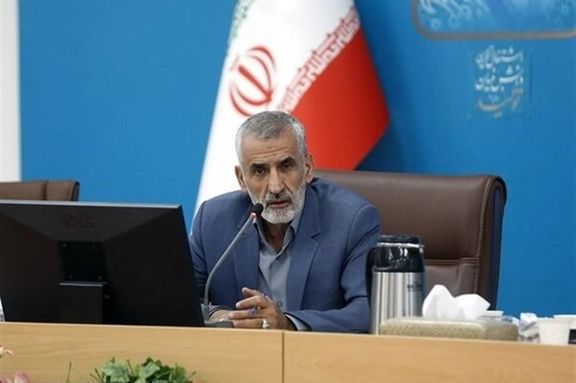
An Iranian official claims “enemies” have offered a lot of money to protesters to attack security agents or chant anti-regime slogans.

An Iranian official claims “enemies” have offered a lot of money to protesters to attack security agents or chant anti-regime slogans.
Deputy Interior Minister Majid Mirahmadi alleged “some girls were assigned to suggest to young protesters to sleep with them for a few nights in return for anti-security acts,” without providing any documents for his claims.
In an interview with state TV, he claimed that an amount of around $1500 was offered to attack a security agent and about 100 dollars to chant slogans.
Using the term “enemies” is a favorite of Supreme Leader Ali Khamenei to refer to the United States, Israel, US allies in the region and in Europe.
Mirahmadi further alleged that some protesters have received asylum offers in other countries for killing a law enforcement agent.
Following Supreme Leader Ali Khamenei’s lead, Iranian officials claim that the ongoing antigovernment protests across Iran – ignited by death in custody of 22-year-old Mahsa Amini -- are instigated by foreign enemies.
The Washington Post on Thursday quoted some Western officials as saying that the Islamic Republic’s intelligence and security services depend largely on proxies to carry out their plans to kill and kidnap its opponents abroad, “offering hundreds of thousands of dollars to jewel thieves, drug dealers and other criminals in murder-for-hire schemes.”
The Revolutionary Guard Intelligence Organization and the IRGC Quds Force have been mentioned as two main actors in designing these plots.
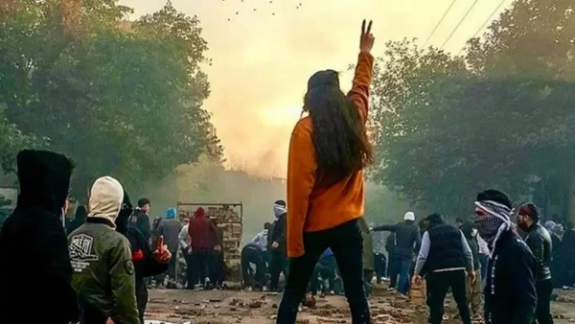
A leaked audio file from a meeting of Iranian regime insiders indicates that at least 80 people detained during nationwide protests are in danger of execution.
The recording is from a recent meeting of the Coalition Council of Islamic Revolution Forces, a conservative coalition of parties that endorsed a joint electoral list for the 2020 Iranian parliament and city council election.
The parliament, elected in a non-competitive election in February 2020, is packed with hardliners and Revolutionary Guard officers, most of whom, including its speaker Mohammad-Bagher Ghalibaf, are members of this coalition.
During the session, Gholam-Ali Haddad-Adel, the head of the coalition and a hardliner politician very close to Supreme Leader Ali Khamenei, asks the secretary, Reza Davari, to brief members about recent developments in the country. In his report, Davari said 80 people have been charged with "Moharebeh" and "corruption on earth.” Mohareb (muharib), which means warrior in Arabic is a term in Iran’s Islamic law that means an "enemy of God” or “war against God,” which carries the death penalty. “Corruption on earth” is also another term that carries the death penalty.
He said that Khamenei preferred the detained protesters be executed based on the principle of "qisas" -- or punishment in kind, which in the Islamic criminal code can be applicable in cases of bodily harm – for killing of Basij paramilitary forces. The regime has on many occasions used the Quranic principle -- similar to “an eye for an eye” or the law of talion – to execute protesters after charging them with killing security agents.
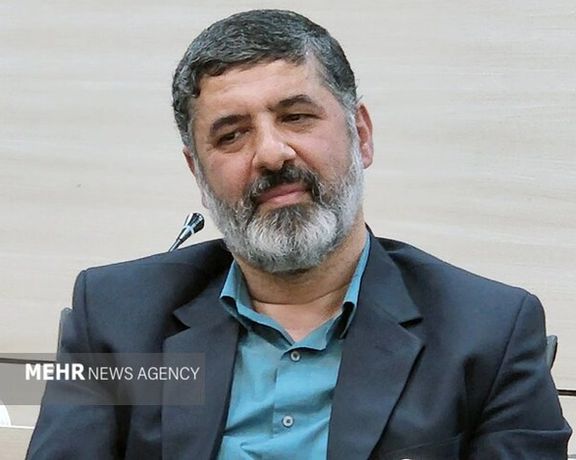
Davari added that if the authorities wanted to execute the protesters based on qisas, they could only issue death sentences for about 10 people, therefore they decided to charge the protesters with “moharebeh” and “corruption on earth” that ensure the execution of more prisoners. He noted that the largest number of such indictments were issued in the provinces of Tehran, Alborz, Fars, Khorasan Razavi and Esfahan.
Any act of defiance can be arbitrarily interpreted as ‘war against god’ in a judicial system that ignores due process and is controlled by the authoritarian ruler Khamenei.
According to recent reports, at least 10 underage protesters are also facing death sentences for the “moharebeh” and “corruption on earth”. During the popular uprising in Iran, over 18,000 citizens have been arrested and it is not clear how many of them were accused of “corruption on earth” and “war against God”.
Davari went on to say that for some of the protesters arrested in Kurdish-majority cities “terrorism” charges were issued so that they could be sentenced to death.
In November, a group of 227 parliament members called on the Judiciary to issue death sentences for people arrested during the ongoing antigovernment protests.
Among other things that were discussed during the session, records of which Iran International obtained, was the brutal crackdown on protesters in Zahedan, the provincial capital of Sistan-Baluchestan, known as the Bloody Friday. It took place September 30, when security forces killed close to 100 people, including women and children. The Islamic Republic never acknowledged the killings of ordinary people and always claimed that security forces only opened fire at those who wanted to attack a police station in the city. However, in the leaked audio, Davari admitted that one of the officers who was stationed on the roof of the police building “made a grave mistake and shot at people” who were not even near the police station, killing some men, women, and children who were not even protesting.
Repeated leaks by hackers and insiders in recent days has unmasked the inner thinking and unpleasant secrets of the Islamic Republic, putting the regime in an uncomfortable situation.
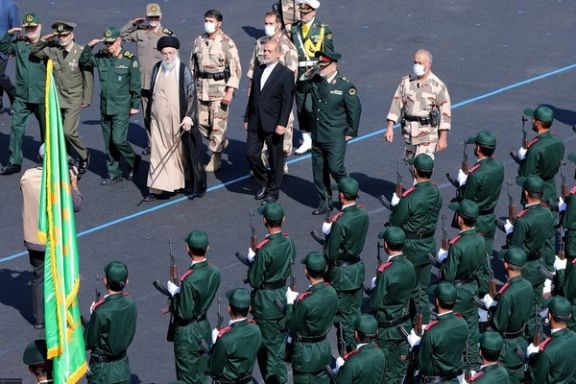
Leaked documents from Iran’s Fars news agency say the at least 115 military personnel have been arrested on charges of participating in the ongoing protest movement.
The files hacked by the Black Reward group reveal that as many as one percent of all those arrested during the protests after the death of Mahsa Amini were military personnel.
Earlier, Parliament Speaker Mohammad Bagher Ghalibaf, President Ebrahim Raisi and Judiciary Chief Gholamhossein Mohseni Ejei had announced at a joint meeting that such “baseless” reports are not “valid”.
However, as reports of the defections among armed forces continued, Hossein Rahimi, the police chief of Tehran, called for more financial support for security agents.
Reports say the regime forces have also arrested a former IRGC commander in an attack on his home, confiscating his personal belongings.
General Mohammad Bagher Bakhtiar had earlier published an audio file, accusing the Islamic Republic of hiding the reason behind Mahsa Amini’s death, who was killed in police custody in mid-September, stating that reliable sources have found out Mahsa Amini succumbed to the “injuries to her skull.”
The government never took responsibility for her death, claiming that she passed away due to a pre-existing illness.
He also stated the authorities of the Islamic Republic are “ambitious” saying if “common sense” had been exercised by accepting responsibility and apologizing for the incident, perhaps there would have been "fewer consequences.
Regarding the slogans by protesters against Supreme Leader Ali Khamenei, Bakhtiar emphasized that “the people are chanting slogans directly against the Leader. People do not want you. Understand this!”
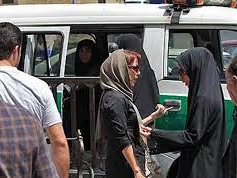
Iran’s Attorney General says the Islamic Republic has disbanded the “morality police” adding that it had nothing to do with the judiciary since its creation.
Mohammad Jafar Montazeri made the comments in a meeting Saturday, stressing however, that the judiciary continues to monitor behavioral conduct among the people, a hint that hijab rules are not scrapped and only special patrols in streets are disbanded.
It is not clear if Montazeri's remark is an official decision endorsed by other top officials or a publicity stunt to show flexibility on the part of the authorities. So far, there is no word from law enforcement that controls the hijab police, or the presidential administration.
Earlier in the week Montazeri had mentioned that the Parliament and the Supreme Council of the Cultural Revolution would announce their opinion on the issue of forced hijab within two weeks, signaling that the mandatory hijab rule might be modified or revoked.
The recent protest movement in Iran was triggered by the death of Mahsa Amini, a 22-year-old woman, when she was arrested by the ‘morality police’ for ‘improper attire.’ During the nationwide protests, women removed the mandatory hijab and set their headscarves on fire in the streets as a sign of protest.
Western governments, including the United Kingdom, the United States, and Canada, added the hijab law enforcement unit to their list of sanctioned entities.
Many women in Iran are now appearing in public without the mandatory veil and regular police is not interfering in a sign that authorities are either unwilling to risk further confrontation with the public or find it impossible to deal with so many women undermining the rule at the same time. Police forces have also become over-stretched during protests and many have resigned or have applied for early retirement.
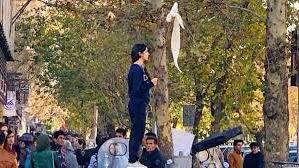
The ‘morality police’ was officially launched in the summer of 2006 during the presidency of then-president Mahmoud Ahmadinejad, a conservative. Ahmadreza Radan, the former police chief of Tehran during this time described the mission of ‘morality police’ as “fighting against improper hijab.”
The apparent end of the controversial and violent institution has been announced by a top Iranian judiciary official in a situation that people on social media say the decision would not persuade them to give up protests since they have fundamental demands, including an end to the Islamic Republic.
They say the mandatory hijab itself is an apartheid policy against women which is still in force. It also symbolizes broader demands for fundamental political and economic reforms like a free and independent judiciary, freedom of speech, free elections, etc.
The Islamic Republic is far from accepting such demands because that would mean its demise if officials became accountable through democratic institutions.
While people on social media generally call for the ouster of the regime, it seems the end of morality police is an insufficient concession to protesters.
Iranian women’s fight against state-imposed hijab started as early as in 1979 shortly after the Islamic Republic was established. Ayatollah Ruhollah Khomeini, the first leader of the clerical regime announced immediately announced that women would be allowed in their workplaces only if they observe compulsory hijab.
Soon after his comments, thousands of Iranian women poured into the streets to protest but they were brutally suppressed by pro-regime forces that would later form the Revolutionary Guard, Basij paramilitary and the ‘morality police.’
This led to years of socioeconomic marginalization of women who rejected the imposition of compulsory hijab and a host of other discriminatory statues and practices. Many well-educated Iranian women, including doctors, nurses, and teachers, lost their jobs and a large number emigrated.
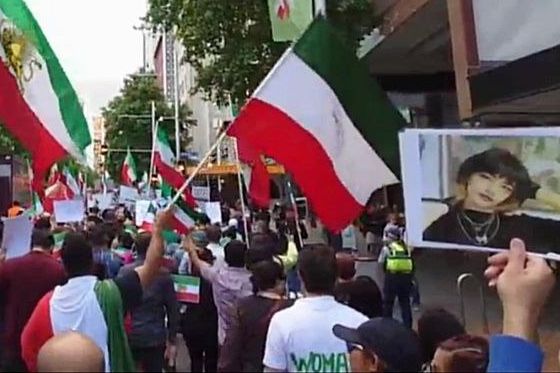
University students in Iran Saturday held demonstrations in many cities, as diaspora communities continued their weekend rallies in support of the protest movement.
Students at Tehran Azad University of Research and Sciences held a sit-in publicizing that they will hold protests on December 7 to mark the annual Student Day in Iran.
Students at Kharazmi University also protested widespread campus food poisonings, chanting “They poison students, and now justify it.”
Within the past ten days, hundreds of students at universities of Esfahan, Arak, Allameh, and Karaj Kharazmi were poisoned after eating dining in cafeterias. Student groups have issued announcements saying that the food poisoning was intentional by authorities to keep them away from protests.
In Tehran University, students at the Faculty of Social Sciences also held a sit-in to protest a recent security beef-up and the restrictions on students.
Many students at Kordistan University also staged a sit-in to protest the arrest of their professors, Behrouz Chamanara.
Meanwhile, Iranians abroad organized gatherings to declare their opposition to the Islamic Republic. In Frankfurt and Melbourne, the “Run for Freedom” program was held with athletes running long distances, and in Brussels artists reflected the voice of Iranian people with dance and music.
Iranians living in Sweden gathered in the city of Gothenburg like in previous weeks and chanted slogans against the Islamic Republic.
Similar demonstrations were held in the city of Auckland in New Zealand, Istanbul, Rome, and Vienna.
Meanwhile, Iranian human rights activist Nargess Mohammadi, who is imprisoned in Tehran’s infamous Evin Prison urged Javaid Rehman, the UN special rapporteur for human rights in Iran to probe into sexual assaults on female detainees.
In a statement published on her Instagram Saturday, she said “Assaulting women during incarceration and in custody centers is part of the regime’s suppression plan against female protesters and fighters.”
Mohammadi added that there had been “numerous and horrifying” reports of female prisoners being assaulted and raped in Evin and Zanjan prisons between 2010 and 2020.
The Iranian activist also went on to say that she was “assaulted and insulted by jail and security authorities in Evin Prison” in 2010. She filed a lawsuit, but instead of justice being served, she received a two-and-a-half-year prison sentence as well as 80 lashes.
In another part of her letter, she called on Rehman, “to investigate, hold accountable and condemn the government, to prevent the continuation of this inhumane method to suppress protesting women and to take serious and quick action in this regard.”
There have been widespread reports of rapes and other sexual abuse being committed on women detainees, which is seen as part of the brutal crackdown on women protesters demanding freedoms.
In November, a network of activists with a mandate to follow up on the condition of detained protesters in Iran reported dire human rights violations such as torture and sexual abuse.
The “Volunteer Committee to Follow-Up on the Situation of Detainees” reported torture, sexual harassment, threats of rape, not having access to medical services, and the detention of some inmates in secret locations.
The report said a female prisoner has been openly threatened with rape. The interrogators told her and other detainees “If you are raped here, you cannot protest! If you want to get naked, and you must pay for it!” The government and its agents accuse anti-hijab protesters of improper attire and nudity.
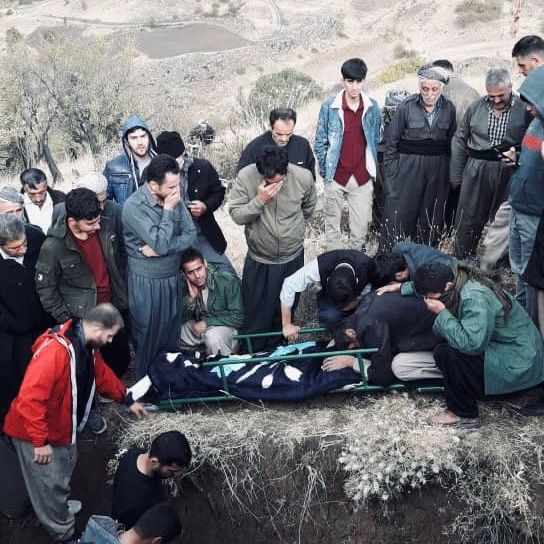
An Iranian state security body says over 200 people have lost their lives during the protests following the death of Mahsa Amini in mid-September.
In a statement on Saturday, the country’s Security Council said over two hundred people were killed during nationwide “riots”, a figure significantly lower than what human rights groups have released.
The judiciary's Mizan news agency quoted the interior ministry’s state security council as saying that security forces, people killed in terrorist acts, “rioters” and armed members of separatist groups have been among the dead.
However, the interior ministry has not acknowledged that regime forces have killed dozens of civilians using live rounds and direct fire.
The body has also warned the protesters that any illegal gathering would be dealt with decisively. This comes as according to the Oslo-based Iran Human Rights Organization at least 448 people including 60 children and 29 women have been killed by security forces in the ongoing nationwide protests.
The US-based Human Rights Activists News Agency (HRANA) announced in its latest report that at least 469 protestors have been killed, of which at least 64 were minors.
An Iranian Revolutionary Guard commander November 29 put the number of dead at three hundred in a contradiction with the numbers released by the interior ministry.
Iran blames “enemies” for the civil unrest, pointing at the United States, other Western powers, and Israel.